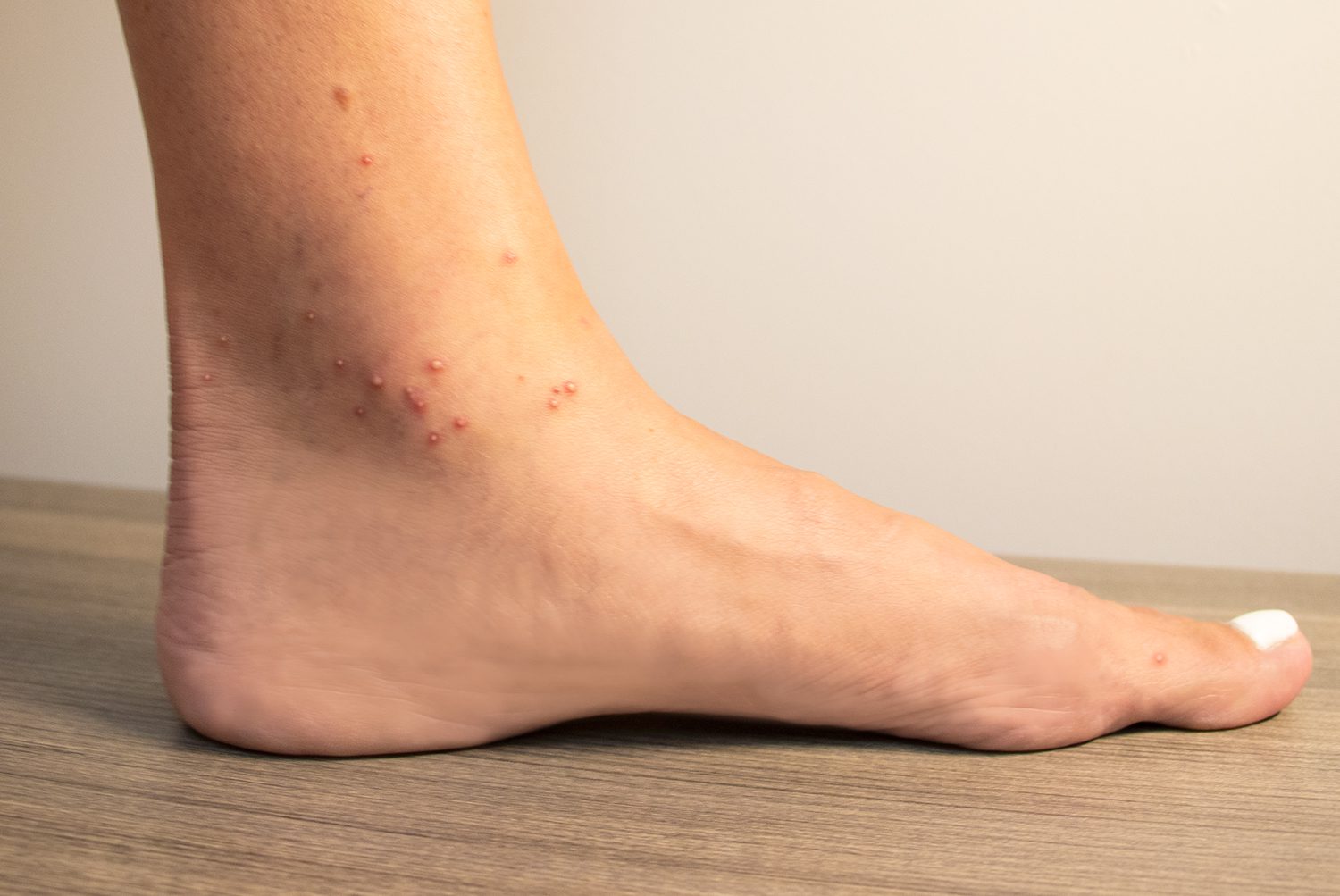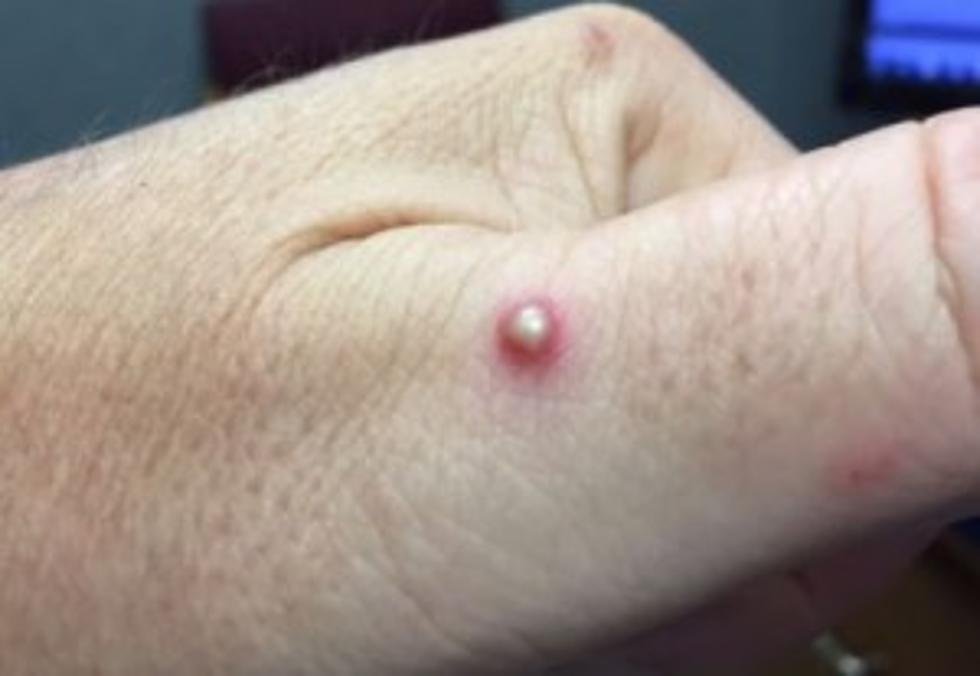Popping ant bites is not recommended as it can lead to infection. Leaving the bites alone allows them to heal naturally within a few days.
However, if a blister accidentally pops, applying antibiotic ointment can help prevent infection. Ant bites can be painful and itchy, making it tempting to pop the blisters that form. But is it safe to do so? We will explore whether it is okay to pop ant bites and the potential risks associated with this practice.
By understanding the proper approach to treating ant bites, you can ensure a timely and effective recovery without compromising your health. So, let’s delve into the topic and discover the best course of action when dealing with ant bites.
The Temptation To Pop
When you notice those pesky ant bites on your skin, the temptation to pop them can be strong. Many people believe that popping the bite will provide relief and help the healing process. However, is it really okay to pop ant bites? Let’s delve deeper into this common dilemma.
- Popping ant bites can increase the risk of infection.
- Breaking the skin can expose the wound to bacteria.
- It may lead to scarring and prolong the healing process.
- Health experts recommend avoiding the urge to pop ant bites.
- If a blister forms, it is best to let it heal naturally.
- Apply an antibiotic ointment to prevent infection if the blister accidentally pops.

Credit: www.reddit.com
Risks Of Popping
Popping ant bites can lead to infection and potential scarring. It’s best to leave the blisters alone to heal naturally and apply antibiotic ointment to prevent infection. Resisting the urge to pop the bites is the safest and most effective approach to manage ant bites.
Popping ant bites may seem like a quick solution to relieve the discomfort, but it comes with a number of risks that you should be aware of. It’s important to understand these risks before you make the decision to pop an ant bite.Increased Infection Risk
When you pop an ant bite, you expose the area to bacteria and germs, increasing the risk of infection. Bacteria from your hands or the environment can enter the open wound and cause an infection. Infections can lead to redness, swelling, pain, and even more serious complications if left untreated. To prevent infection, it is advisable to avoid popping ant bites.Potential Scarring
Another risk of popping ant bites is the potential for scarring. When you pop the blister or break the skin, you disrupt the natural healing process of the body. This can result in the formation of scars, which can be permanent. Scars can be unsightly and may take a long time to fade, affecting the appearance of your skin.To avoid potential scarring, it is best to let ant bites heal on their own. Applying a cold compress and using over-the-counter antihistamines or hydrocortisone creams can help alleviate itching and reduce the urge to scratch or pop the bites. It’s also important to keep the area clean and dry to promote healing.In conclusion, popping ant bites may provide temporary relief, but it comes with risks that can lead to infections and potential scarring. It’s best to let ant bites heal naturally and take steps to alleviate itching and discomfort without breaking the skin. If you are concerned about potential infections or severe reactions to ant bites, it is advisable to seek medical attention.Expert Advice
For ant bites, it’s not advised to pop the blisters to avoid infection. Instead, let them dry up naturally. If accidentally popped, apply antibiotic ointment to prevent infection. Resist the urge to squeeze fire ant bites to prevent potential complications.
Healthcare Recommendations
When it comes to dealing with ant bites, it’s important to seek expert advice to ensure proper care and treatment. While it may be tempting to pop ant bites, doing so can have negative consequences. Scratching or popping the blisters can open them up, increasing the risk of infection. It’s best to leave ant bites alone and allow them to heal naturally.
If you do accidentally pop an ant bite blister, it’s important to take immediate action to prevent infection. Apply an antibiotic ointment up to three times a day for one to two days to help prevent the entry of bacteria and germs into the body. This simple step can significantly reduce the chances of developing an infection.
Advice From Poison Control
Poison Control Centers also recommend avoiding the urge to pop ant bites. Popping an ant bite blister can introduce bacteria and increase the risk of infection. Even if the blister remains unbroken, it is best to allow it to heal naturally to avoid potential complications. Remember that prevention is key, so taking precautions to avoid ant bites in the first place is crucial.
It’s essential to keep the affected area clean and dry to promote healing. If you notice signs of infection such as increased pain, redness, swelling, or discharge, it is advisable to seek medical attention. A healthcare professional can evaluate the situation, prescribe appropriate treatment, and provide further guidance for managing ant bites effectively.
Overall, while it may be tempting to pop ant bites, it is best to resist the urge and follow expert advice. By allowing ant bites to heal naturally, avoiding infection becomes easier, and the recovery process is generally faster. Remember to prioritize your health and well-being by seeking appropriate medical attention if needed.

Credit: www.reddit.com
Treatment Alternatives
When dealing with ant bites, it is important to consider safe and effective treatment alternatives. From antibiotic ointments to natural remedies, various options can help alleviate the discomfort and prevent infections.
Antibiotic Ointment
Using antibiotic ointments can be a helpful way to prevent infections in popped ant bites. Apply the ointment up to three times a day for one to two days after popping the blister.
Natural Remedies
Explore natural remedies to soothe ant bites without the use of chemicals. Options such as aloe vera, tea tree oil, or baking soda paste can provide relief and promote healing.
Prevention And Management
Dealing with ant bites can be troublesome, but knowing how to prevent and manage them can make a significant difference. By taking proactive measures to avoid bites and promptly addressing their symptoms, you can minimize discomfort and potential complications.
Avoiding Ant Bites
When it comes to avoiding ant bites, the following strategies can be useful:
- Refrain from disturbing ant nests or mounds
- Wear protective clothing such as long sleeves and pants, particularly when venturing into grassy or wooded areas
- Utilize insect repellent to deter ants and other pests
- Keep food and drinks sealed to deter ant invasions
- Regularly inspect and seal gaps and cracks in buildings to prevent ants from entering
Caring For Ant Bite Symptoms
After experiencing ant bites, it’s important to know how to care for ant bite symptoms effectively:
- Wash the affected area with mild soap and water
- Apply a cold compress or ice pack to reduce swelling and alleviate discomfort
- Avoid scratching the bites to prevent further irritation and potential infection
- Use over-the-counter antihistamines or corticosteroid creams to alleviate itching
- Seek medical attention if there are signs of an allergic reaction or infection

Credit: www.conwaymedicalcenter.com
Frequently Asked Questions Of Is It Okay To Pop Ant Bites
Should You Pop The Whitehead From An Ant Bite?
It is not recommended to pop the whitehead from an ant bite as it can lead to infection. If the blister is accidentally popped, apply antibiotic ointment up to three times a day for one to two days to prevent infection.
What Happens If You Squeeze An Ant Bite?
It is best not to squeeze or pop an ant bite blister to avoid the risk of infection. Leaving it alone allows the area to heal on its own, although it may leave a scar. If the blister accidentally gets popped, apply antibiotic ointment to prevent infection.
When Should You Pop An Ant Bite?
Avoid popping ant bites to prevent infection. If blister pops accidentally, apply antibiotic ointment to prevent infection, up to three times daily for one to two days.
Does Pus Come Out Of Ant Bites?
Pus may come out of ant bites if they become infected. It is best to avoid popping the blisters to prevent infection. If the blisters are accidentally popped, apply antibiotic ointment to help prevent infection.
Conclusion
If you’re wondering about popping ant bites, it’s best to resist the urge. Popping can lead to infection and scarring. Let the bites heal naturally with proper care. Remember to apply antibiotic ointment if you accidentally pop them. Prioritize your health and well-being.

I’m MD Tanvir, and I bring years of expertise gained from working closely with pest control companies to the forefront. My journey in the industry has inspired me to launch Bug Battler, a platform aimed at equipping people with the know-how to combat pests autonomously. Through Bug Battler, I aim to empower individuals with practical insights to tackle pest infestations effectively.

